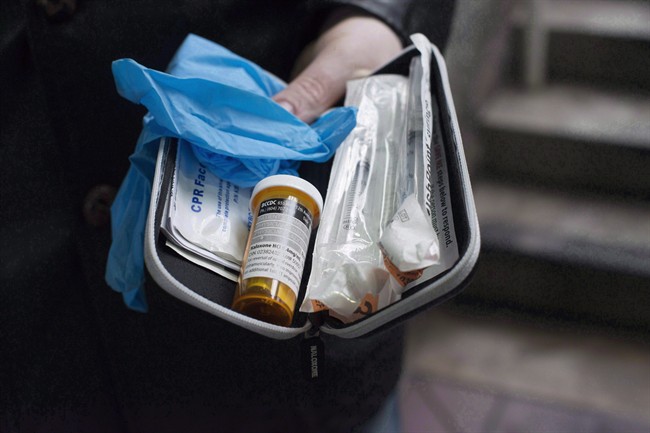A city committee is endorsing an existing opioid crisis working group, after more than an hour and half of debate at London City Hall Monday night.

Part of its task is to look into the city’s existing approach to the rising number of overdose deaths, including a supervised consumption site currently waiting approval from Health Canada.
During a presentation at city hall, medical officer of health Chris Mackie talked about the merits the site would have in addressing overdose deaths, the spread of HIV, endocarditis, litter, and public drug use.
“Supervised consumption is about walking alongside people who have drug addictions,” he said.
“We are going to have to address the stigma that we all carry against people who are addicted. That stigma impacts people’s daily lives, but it’s also a major barrier to the services that they seek.”
Mackie told city politicians how drug users face barriers when they seek out existing services and are often treated with “disdain and with disrespect” by people who may be tasked with helping them, such as by nurses at a hospital.
- Bird flu risk to humans an ‘enormous concern,’ WHO says. Here’s what to know
- Shoppers faces proposed class action over claims company is ‘abusive’ to pharmacists
- ‘Bacterial vampirism’: Deadly pathogens attracted to human blood, study finds
- Most Canadian youth visit dentists, but lack of insurance a barrier
He emphasized the need for partnering with people who use drugs in the community, in an effort to tackle the rising number of opioid-related deaths and other drug-related issues in the city.
“People who use drugs in London understand the issue better, they will understand the potential solutions and how they will or will not work for the community better,” Mackie said. “They’re often the ones that care the most about this issue, and they’re the most untapped resource in terms of intel and what’s happening on the street and addressing this problem.”
It costs $50 million annually to treat London’s HIV outbreak, explained Mackie, pointing out how supervised consumption sites are known to reduce the risk of spreading the virus. It also reduces needle waste, gives people a safe and clean space to use, and has a nurse on site with Naloxone kits in case of overdose.
The Middlesex-London Health Unit sounded the alarm a year ago after discovering local HIV rates were climbing while provincial rates were on the decline.
“Supervised consumption will not solve our drug crisis. It is, however, a cornerstone on which a number of other solutions must be built,” said Mackie.
“It sends that message to the people using drugs on the street that your community cares about you, and wants to work with you. That’s the exact opposite message they’ve often been getting for most of their lives.”







Comments